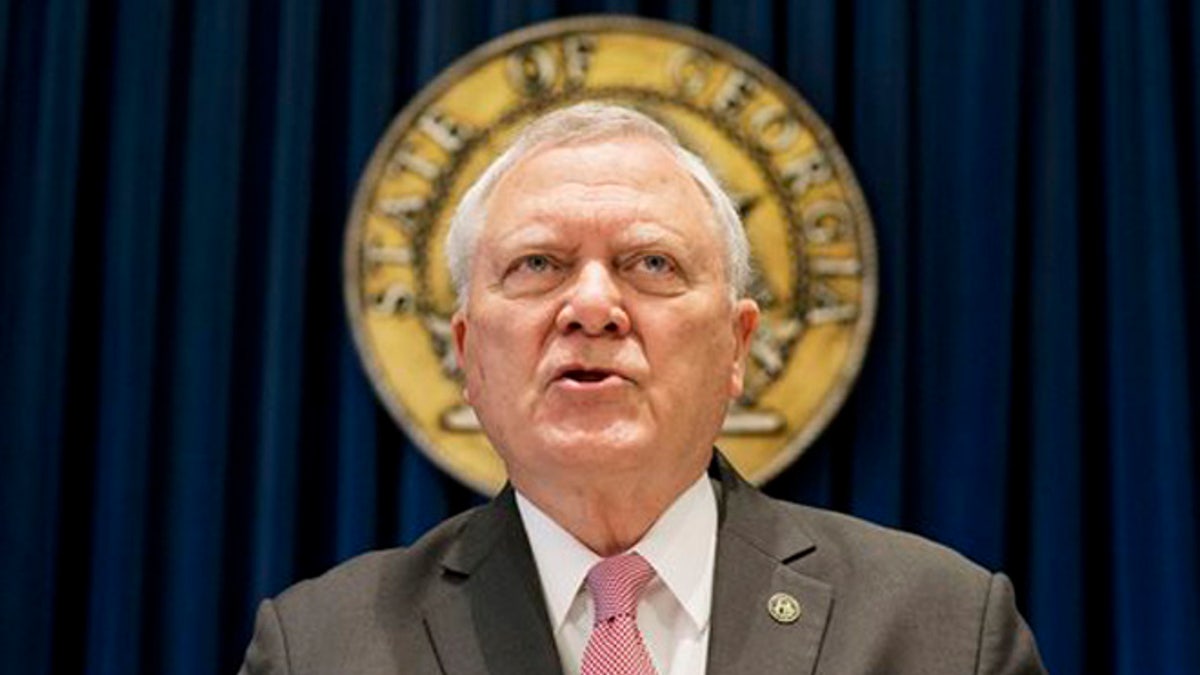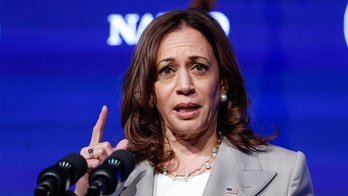
In this Monday, March 28, 2016 file photo, Georgia Gov. Nathan Deal speaks during a press conference in Atlanta. (AP Photo/David Goldman)
ATLANTA – Georgia's Republican governor vetoed a bill Tuesday allowing concealed handguns on college campuses, rejecting the proposal that a legislature controlled by his own party had easily approved in an election year.
The bill would have allowed anyone 21 and over to carry a concealed handgun with the proper permit on a public college or university campus. The veto decision came weeks after Gov. Nathan Deal, who is in his second and final term, rejected a bill shielding opponents of gay marriage. That measure was backed by conservative groups but blasted by more than 500 Georgia companies as discriminatory.
Deal's decision to kill the gun bill isn't a complete surprise. After it passed the legislature, he asked members to pass follow-up bills addressing concerns about access to on-campus daycare centers, spaces where high schools students can take college-level courses and where disciplinary hearings are held. They declined, saying the original bill was carefully considered.
Deal offered a lengthy, written veto message, citing legal precedents and even harking back to Thomas Jefferson and James Madison in 1824, and their stance opposing guns on the University of Virginia campus.
He also referred to a U.S. Supreme Court opinion by recently deceased Justice Antonin Scalia. Deal said Scalia wrote that schools and government buildings should be considered "sensitive places" under the Second Amendment.
"From the early days of our nation and state, colleges have been treated as sanctuaries of learning where firearms have not been allowed," Deal said. "To depart from such time honored protections should require overwhelming justification. I do not find that such justification exists."
Georgia House Speaker David Ralston said he was disappointed by his fellow Republican's veto, but added that it's not the end of the discussion.
"At a time when our Second Amendment rights are under attack, I believed and still believe that it is very important that we do all that is necessary and proper to strengthen our constitutional protections," he said in a written statement. "Georgians should not be required to give up their constitutional rights when they set foot on a college campus.
The National Rifle Association was one of the premier lobbying groups behind the bill, and voiced its disapproval of the veto in a statement Tuesday.
NRA spokeswoman Catherine Mortensen said the measure would have made Georgia campuses safer for Deal's constituents.
"The NRA is thankful to Lt. Governor Casey Cagle and the legislators who worked to protect law-abiding citizens' constitutional right to self-defense on campus and we look forward to working with them next session to pass this important safety legislation," Mortensen said.
The powerful governing board of the University System of Georgia opposed the so-called "campus carry" measure. All 29 public university and college presidents, along with their police chiefs, also have said they oppose the bill.
Other states have also seen praise and criticism for similar decisions, including Texas, where a prominent dean at the University of Texas left the school due to a new law effective Aug. 1 that will allow concealed handguns in school buildings and in classrooms.
Nine states currently have laws on the books allowing concealed handguns on campus, including: Colorado, Idaho, Kansas, Mississippi, Oregon, Texas, Tennessee, Utah and Wisconsin. According the National Conference of State Legislatures, 23 states leave the decision to ban or allow weapons up to the individual colleges and universities, and 19 states -- still including Georgia -- currently ban concealed weapons on campuses.
Supporters of the measure have said allowing students who have passed background checks to carry concealed handguns on campus would help make the environment safer, and serve as a deterrent for increased gun violence.
Democrats credited students, faculty and other opponents for opposing the "ill-advised" measure.
"Georgians stood together to work toward making our campuses safer environments," said state Democratic Party Executive Director Rebecca DeHart.
Lindsey Donovan, leader of the Georgia chapter of the anti-gun violence group Moms Demand Action, said she was grateful Deal "listened to Georgia students, faculty and parents."
"The leadership shown by Governor Deal with this veto should stand as proof to other elected officials that this is not a partisan issue and that they too can stand up to the gun lobby," Donovan said. "I'm thrilled that our voices were heard and that the will of the gun lobby no longer goes unchecked in the state of Georgia."




